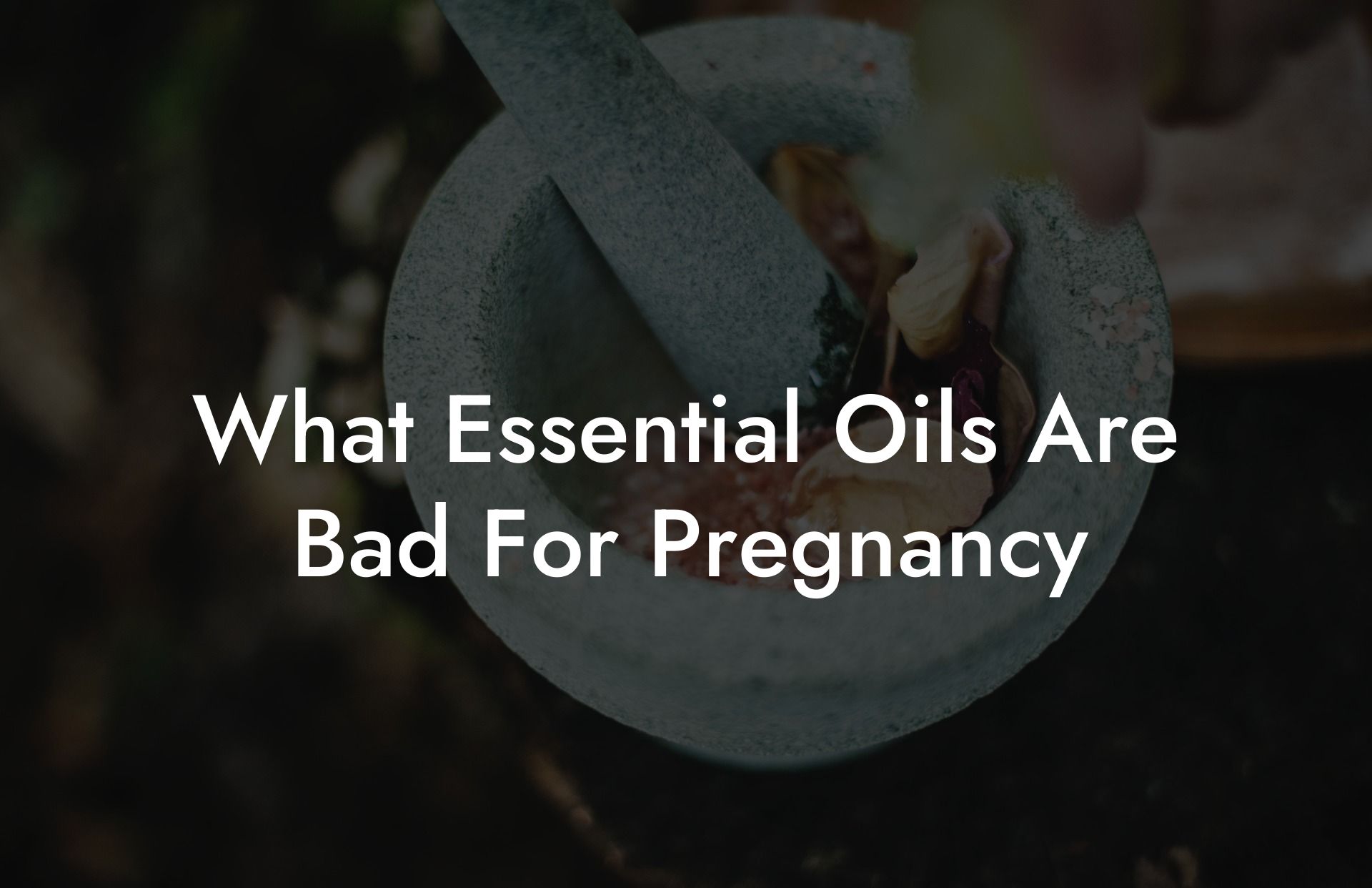Pregnancy is a magical and transformative time in a woman’s life, but it can also be filled with uncertainty and concerns. You’ve likely been bombarded with advice about what to eat, what to avoid, and which activities to pursue or pause during this delicate period. If you’re an essential oil enthusiast, you might be wondering which oils are safe to use while pregnant, and which could be harmful. It’s essential to have accurate knowledge, so you can continue enjoying the holistic benefits of aromatherapy while safeguarding your growing bundle of joy. Let’s explore which essential oils are bad for pregnancy and discuss alternatives that are safe for both you and your baby.
Table of Contents
Why Some Essential Oils Are Bad For Pregnancy
Essential oils possess potent and concentrated compounds that can have numerous benefits, but their strong properties can also potentially cause harm. Some oils have the ability to stimulate uterine contractions, which could lead to premature labor. Others may have harmful effects on the developing fetus or even cross the placental barrier, resulting in potential risks.
Essential Oils to Avoid During Pregnancy
While there are several oils that are safe during pregnancy, there are also a few with risks that could outweigh their benefits. Here is an overview of essential oils to avoid during pregnancy:
- Wormwood
- Rue
- Oak moss
- Lavandula stoechas
- Camphor
- Parsley seed
- Sage
- Tansy
- Thuja
- Birch
- Wintergreen
- Hyssop
- Aniseed
- Camphor
- Cinnamon bark
- Fennel
- Fenugreek
- Mugwort
- Pennyroyal
- South American pepper
- Uda
Please note that this list is not exhaustive, and it’s always best to consult with your healthcare provider or an expert in aromatherapy before using essential oils during pregnancy.
Safe Essential Oils for Pregnancy
Thankfully, there’s a wide range of essential oils that can be safely used during pregnancy when properly diluted and used with caution. Some popular options include:
- Lavender – known for its calming properties, this oil can help reduce stress and promote better sleep.
- Chamomile – this soothing oil can ease aches, pains, and tensions.
- Ylang Ylang – with a relaxing and balancing effect, this oil can help balance emotions and alleviate anxiety.
- Orange – uplifting and energizing, this citrus oil can boost your mood and help combat fatigue.
- Ginger – useful for easing nausea and morning sickness during pregnancy.
Remember to always dilute essential oils with a carrier oil and never use them undiluted directly on your skin. The standard recommendation during pregnancy is a maximum 1% dilution.
What Essential Oils Are Bad For Pregnancy Example:
Imagine you’re in your second trimester, and you’re beginning to experience the aches and discomfort associated with your growing bump. After some research and consultation with your healthcare provider, you discover that lavender and chamomile essential oils can help soothe your discomforts while being safe for your unborn baby. You decide to create your own custom pregnancy massage oil by diluting 5 drops of lavender and 5 drops of chamomile into 50 ml of jojoba oil. This comforting blend not only eases your pregnancy-related aches and pains but also calms you emotionally, providing a holistic benefit during this special time.
In conclusion, it’s essential to stay informed about which essential oils to avoid during pregnancy and which are safe to use. By educating yourself, you’re taking the necessary steps to provide the best care for yourself and your growing baby. We hope this information has been helpful and encourages you to consult with your healthcare provider and explore other articles on our blog. Oshu Oils offers a range of essential oils and blends perfect for supporting a healthy pregnancy journey. Feel free to share this article with friends, fellow mothers, and expectant parents who may be navigating the world of essential oils during this special time. Remember, knowledge is power – happy, and holistic pregnancy!





















